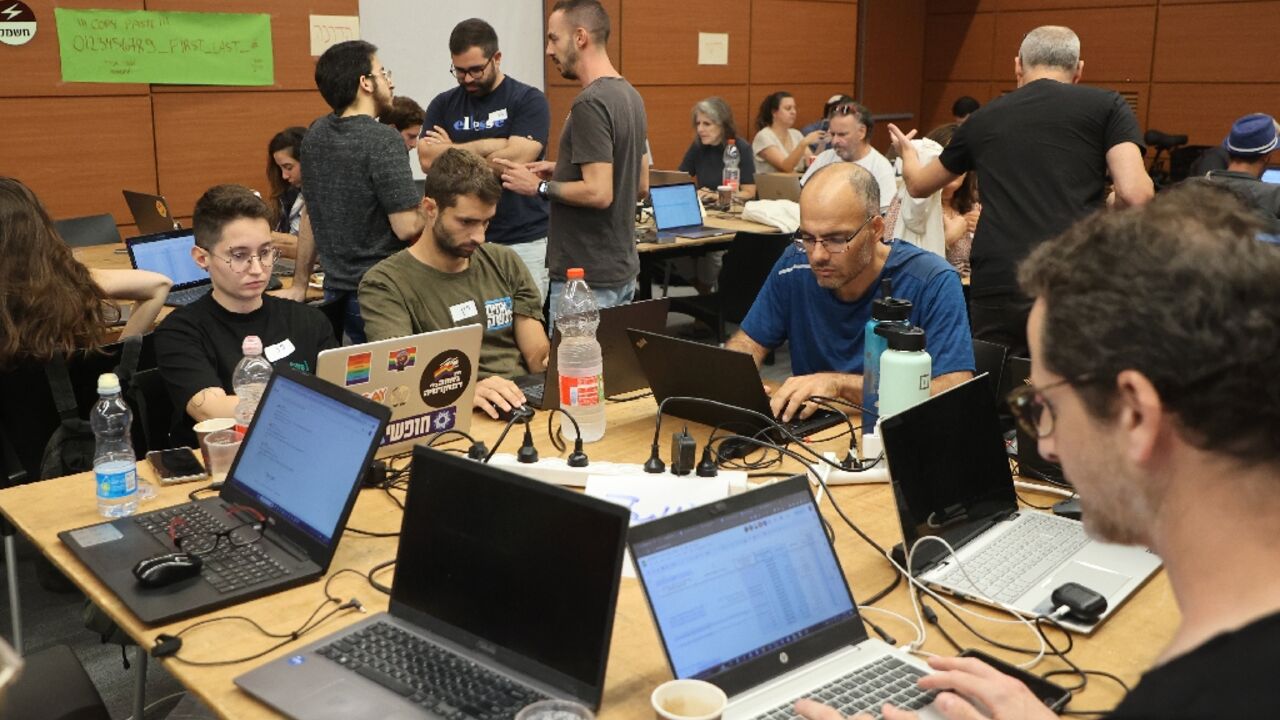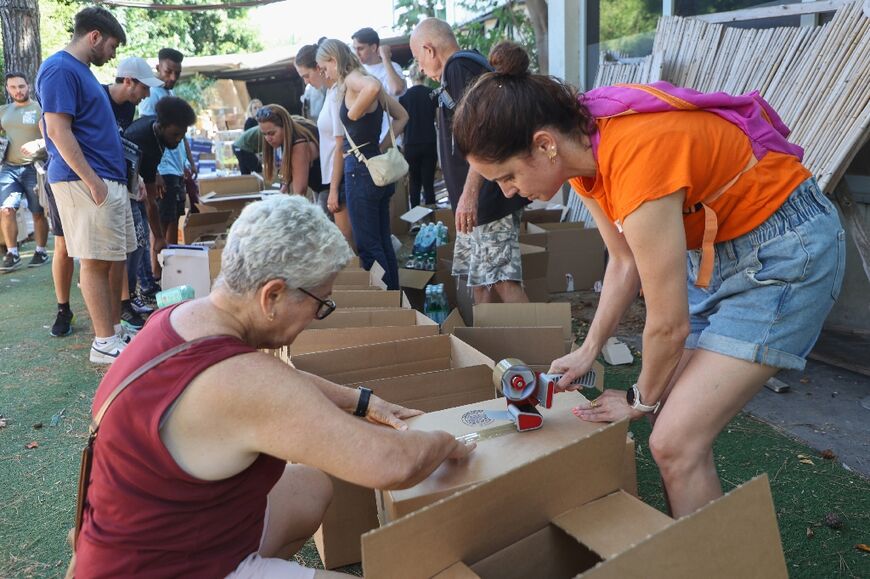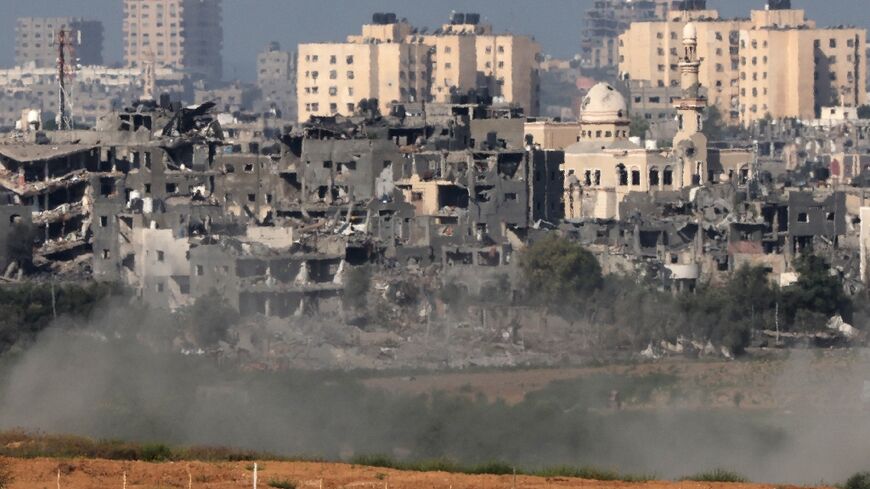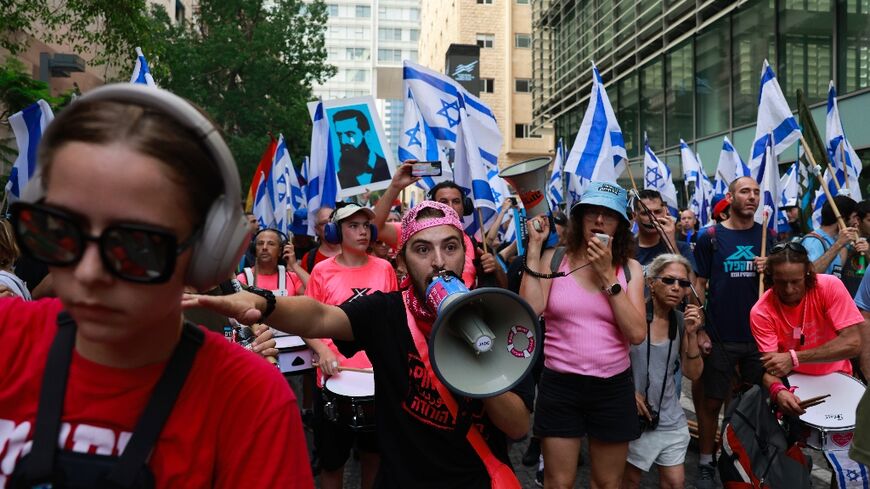In war, Israel protest movement morphs into relief effort

Volunteers toiled away at Tel Aviv's convention centre, doing "anything our government fails to", said an Israeli protest leader who has helped turn his movement into a huge relief operation since last weekend's Hamas attack.
For 39 straight weeks, opponents of the hard-right government's divisive judicial overhaul had brought tens of thousands of people onto the streets in what became the biggest protest movement in Israel's history.
Almost immediately after the attack on southern Israeli communities, they mobilised to help those affected, providing emergency aid to evacuees, rescuing stranded people and pets, and even helping to locate and identify victims and hostages held captive in the blockaded Gaza Strip.
"Civil society organisations... are supporting anything our government fails to support," said Ami Dror, 50, a tech CEO who has emerged as a prominent protest leader since the legal reform agenda was unveiled in January by Prime Minister Benjamin Netanyahu's government.
"We simply shifted from protest mode to help mode," he told AFP at Expo Tel Aviv which was teeming with activity.
"It's the same thing," said Dror. "We were warning against this government, that did everything in order not to take care of its citizens. We see it now."
In one hall, hundreds of volunteers with tech experience were using advanced tools to verify the identities of those believed to have been abducted.
At a parking garage nearby, dozens were sorting through tonnes of donations of food, clothes and hygiene products, packing boxes that would then be delivered to hospital patients, soldiers and families who lost their belongings in the violence.
Since Saturday, when Palestinian militants launched a multi-pronged assault, at least 1,300 people have been killed in Israel, most of them civilians, according to official figures.
The fighting has spiralled into all-out war. Israeli strikes on Gaza have claimed more than 2,000 lives including hundreds of children, officials in the densely populated Palestinian territory said.
Apart from the headquarters in Tel Aviv, activists have set up operations across Israel, which, according to a compilation of figures provided by some of the organisations taking part, involved tens of thousands of volunteers.
In less than a week, donations in money and in kind from Israel and abroad totalled a few hundred million dollars.
- 'Broken people' -
Israel has a "strong civil society... that's why we'll win", said blogger Dana Gat, 33, who lives in the north of the country.
When she heard the "horrible news" on Saturday, "I didn't know what to do, and started sharing images of missing people" on social networks to try and reunite families, she told AFP by telephone.
Since then, Gat said she had received countless requests for assistance and used her social media presence to collect donations and connect volunteers with people in need.
Many requests came from soldiers, but "I'm just a blogger," she said.
"The government needs to do it, it's not my job," she said.
For Yishai Pulvermacher, spokesman for women's rights group Bonot Alternativa ("Building an Alternative") which over the past year has been involved in demonstrations against the judicial reforms and now helps to coordinate relief operations, "there has never been anything like this in Israel."
People organised "at an incredible speed", relying on existing networks to set up collection and distribution centres across the country, he said.
The group's founder, 41-year-old Moran Zer Katsenstein, said she can't trust the government to take care of the "thousands of thousands of people in Israel (who) are broken".
"There is a complete generation we need to save," she told AFP.
- Not 'a single demonstration' -
Karine Nahon, an information scientist at Israel's Reichman University who has emerged as a protest leader since January, now heads the tech unit that uses data and AI to identify victims and hostages.
"Time is running out," said Nahon, 50.
But with the protest movement's infrastructure and Israeli tech expertise, they were able to act swiftly, she told AFP.
Kalanit Sharon, 34, said her Pink Front protest group has shifted from "fighting on the streets" to exercising "solidarity".
"I'm afraid" of the war, Sharon, a Tel Aviv resident, told AFP by telephone.
"I hope... we'll have something left to save, and once we get there, we'll keep fighting for democracy."
Activists interviewed by AFP all agreed the Netanyahu government has failed.
"They have blood on their hands", said Dror of the Ahim Laneshek (Brothers in Arms) protest group of army reservists.
"I truly hope mot a single demonstration will be needed."







